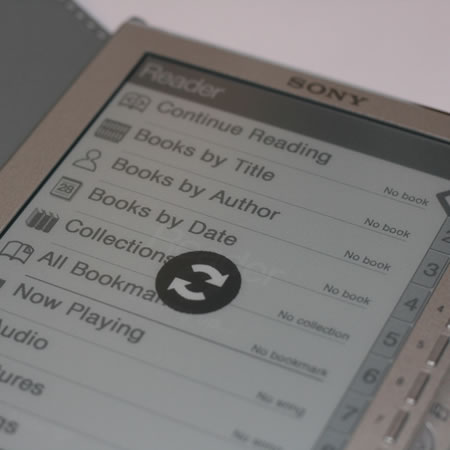I am running another symposium at ALT-C, this year it is on ebooks.

eBooks and eBook Readers bring new challenges and new opportunities for learning technologists. Sony has the eReader, Amazon the Kindle and now Apple has the iPad. Publishers are now offering more titles as eBooks.
There is a huge growth and interest in this new medium. Some learners prefer physical books and the feel of paper, but do eBooks have the potential to offer more to the reader? Are eBooks a new way for learners to access information and learning? Are they just a digital version of print, ignoring the affordances of new technologies?
This symposium will explore the potential of eBooks, the role of eBook Readers for learning, and the ways in which learning technologists can utilise eBooks to enhance and enrich the learning experience.
The panel consists of: educators who have used eBooks with learners; researchers who have researched the use of eBooks in education by learners; publishers who have designed and developed eBooks; and learning technologists.
Each member of the panel brings their experience of embedding the use of eBooks with learners. These experiences have been through using eBooks in the classroom and in the library with learners. Researching user behaviour in the use of eBooks and designing eBooks for learners.
The session will commence with an overview and introduction of eBooks and eBook technologies, through mobile devices such as the iPad and using the browser.
The members of the panel will each deliver a presentation on their view of the future of eBooks. They will pose questions to the audience to stimulate debate and discussions. Panellists with the audience will debate the strengths and weaknesses of eBooks and the various eBook Readers available. They will discuss whether eBooks offer new pedagogies or reinforce existing ones.
By the end of the debate participants will have had an opportunity to discuss the advantages and challenges that eBooks bring to education and the role they could play in the enhancement and enrichment of learning.
The symposium takes place between 17:10 – 18:10 on Tuesday, 7 September in Room 1.

I love books and I love reading! I’ve read ebooks on a Palm device for over a decade and more recently on a Sony ebook device. Currently lusting after an iPad. They all do different things for me – so they don’t ‘replace’ each other. (Palm and now iPod fit in my pocket and always handy; Sony – battery life, no eye strain and great visibility in bright sunlight; iPad – ability to read A4 PDFs – I hope!) But print books still have a place too – easy on the eye, no power requirements, can be lent and given away; fast when ‘digesting’ a lot of material quickly.
The perfect blend of all worlds hasn’t arrived yet. For fiction, a faster and possibly colour Sony would be great (or from the other direction an iPad that had eink); for work related documents crucial that I can make notes and excerpt quotes and that it’s quick and ‘instant on’ with decent battery life. (Laptop fails on several of those counts).
That’s the technology – as for ebooks themselves something needs to change with regard to DRM and ‘geographical restrictions’ (e.g. bought a book on my Palm several years ago that I can’t now have on my iPod thanks to geographical limitations imposed in the interim). Yesterday searched iBooks and the Amazon store for Kindle for a title I’d just read about and wanted – the former didn’t have it and the latter had it a price half as much *again* as a print copy (£13.50 instead of £9.40 something). This is just nonsense. I would have bought it had it been an ‘app’ like £3.99 or something. But not paying that much over the odds for something I almost certainly won’t be able to keep for a decade or two, won’t be able to make notes on, won’t be able to lend, won’t be able to give away).
Anyway, trust the symposium goes well – will look forward to hearing about it hopefully.